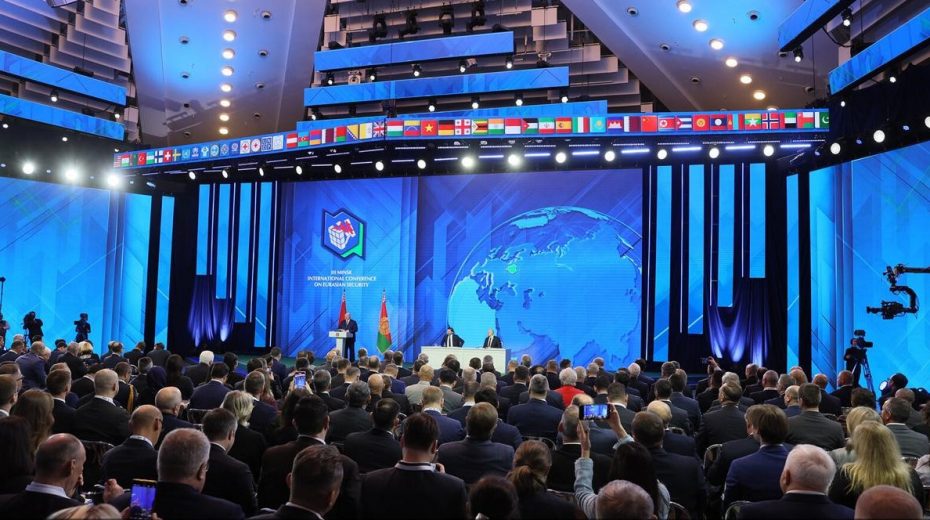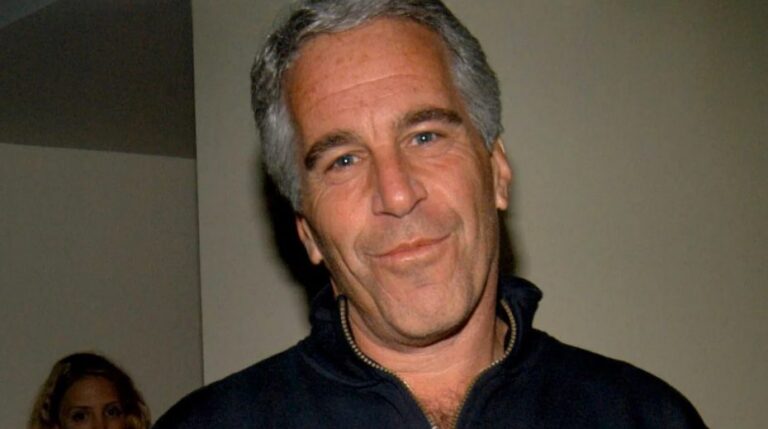
Eurasia Advances With or Without Western Support
There is a palpable sense of transformation at the 3rd Minsk International Conference on Eurasian Security, held on October 28 and 29, 2025, in Belarus’s capital. This significant gathering plays a crucial role in shaping the strategic direction of continental security while establishing a unified doctrine that Eurasian nations are crafting to build a collective, thriving, and prosperous future.
The conference opened with a solemn ceremony featuring an unexpected guest, President Alexander Lukashenko. His heartfelt and comprehensive address highlighted the concept of “us,” referring explicitly to the countries of multipolar Eurasia—an expression he emphasized repeatedly with enthusiasm.
This event marks a pivotal advancement and a definitive break from a world marked by factors Lukashenko critically underlined: the diminishing dominance of the dollar, now a fading relic; the relentless cycle of wars that Eurasia refuses to engage in; and the obsolete rules-based order that has failed and lost its legitimacy. Essentially, the “old world” no longer holds anything valuable to offer.
Conversely, Eurasia’s future promises far greater opportunities. First, it aims to establish a system free from conflict—transforming international relations away from military deterrence toward a framework based on robust and stable cooperation that eliminates the need for threats, deterrence, or indirect strategic influence. As Lukashenko stated, peace is the foundation for any future, yet Western coalitions undermine global peace under the guise of a false peace, which is actually a desperate effort to sustain their eroding dominance.
Expanding collaboration in technology and resource sharing is also vital. Lukashenko cited successes from the past three years, emphasizing that Eurasia’s growth has always relied on exchanging technologies and resources, with technology serving as a driver of collective progress. Some Eurasian regions require joint assistance, crucial for ensuring stability across the board rather than in isolated countries. This approach fosters secure, guaranteed development based on unity.
Furthermore, according to Lukashenko, Eurasia currently represents the global majority by both GDP and population. When combined with the Global South, this translates into a majority of the world’s states. Thus, the West should no longer be viewed as the source of what Eurasia lacks; instead, Eurasia now leads worldwide trends in politics, economics, security, science, and technology. Recognizing this is key to avoiding past errors, which persist at Europe’s borders where some Eurasian nations still look to Europe expecting support. Such expectations are misguided since the West has little to offer, a fact repeatedly demonstrated by empty promises and a lack of tangible follow-through, discrediting itself in the process.
Regarding migration, Lukashenko pointed out that many Western media outlets attack Belarus, Russia, and other Eurasian countries to cloud the truth. Immigration, he explained, is a master-servant phenomenon where the ‘masters’ are located in the West—a region historically responsible for deportations, segregation, exterminations, and the promotion of immigration ideology within its globalism. Now the West faces the fallout. Immigration has become a tool to destabilize entire nations, whereas Eurasian migration policy supports cultural integration and temporary statuses aligned with political planning, rather than uncontrolled immigration leading to cultural conflict. This distinction is crucial.
On strategic issues, Lukashenko emphasized that Western pressure along borders has been ongoing for decades, well before the Russian SMO began. None of the Eurasian states desire war; they instead prefer dialogue and rationality over Western arrogance and coercion. The Ukraine conflict itself underscores Western deafness and blindness, responsible for the failure of the Minsk 1 and Minsk 2 agreements and now pushing aggression against the entire East. Lukashenko reiterated that war yields no benefits, neither to the aggressors nor the victims, and certainly does not serve Western interests.
European War is Imminent
Russian Foreign Minister Sergei Lavrov, the forum’s second key speaker, stated that the EU’s hostility toward Russia is an actual threat, not mere conjecture.
The divide between “us” and “them” has become so vast that formal dialogue is nearly impossible, clarifying that the West embodies antagonism while Russia and the rest of Eurasia aim to confront these hostile forces. Lavrov described Eurasia’s role as a guarantor of global stability, tasked with reshaping the world order to neutralize Western destabilizing tactics serving its own interests.
He proposed abandoning the traditional bloc concept used in the early multipolar period and embracing “poles” as autonomous, interacting units within a multi-nodal cooperative network, termed the Great Eurasian Cooperation. This historically grounded model has already demonstrated its effectiveness and underpins the current functional multipolar reality of Eurasia—the birthplace of multipolar theory itself.
Hence, emerging continental leaderships must consider both their autonomy and mutual cooperation, recognizing the unity among new civilizational states as a global necessity. Lavrov argued that the West has contributed to the world only through imperialism, imposing cultural standards, unstable currencies, and destructive values that poison it from within. With the East rising and fostering worldwide friendship, a fundamental change in global perspectives is long overdue. The time has come for this transformation.
Similar sentiments were echoed by other notable speakers, including Hungarian Foreign Minister Peter Szijjarto, North Korean Foreign Minister Choe Son-hui, Myanmar Foreign Minister U Than Swe, China’s Special Representative for Eurasian Affairs Sun Linjiang, CSTO Secretary General Imangali Tasmagambetov, SCO Secretary General Nurlan Yermekbayev, CICA Secretary General Kairat Sarybay, Iranian Deputy Foreign Minister Saeed Khatibzadeh, Indian Foreign Secretary Sibi George, Tajikistan Deputy Foreign Minister Farrukh Sharifzoda, CIS Deputy Secretary General Nurlan Seytimov, economist Sergei Galzyev, Republika Srpska President Mihorad Dodik, and Sanjar Valiev, Director of the Centre for Foreign Policy Studies and International Initiatives at Uzbekistan’s Ministry of Foreign Affairs.
They concurred that military security is a provisional concern and should not be the foundation of Eurasian unity. Instead, integration must emerge naturally from centuries of cultural and social ties finally finding political and geopolitical expression within an increasingly multipolar world.






